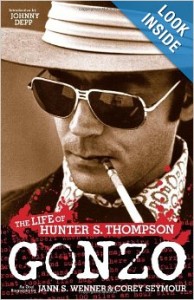The author stereotype is thick with vice. Watch a movie about a writer, writers, or writing and at least one of the characters—fictional or real—is smoking, drinking, or feeding a drug addiction.
And why not? Writing, like any other art or craft is conducted with passion. Words are selected from chaos and flung onto the page into first-draft order—corrected over time through frustration, pain and patience.
Without vice, what compels an intelligent human being to sit in their chair long enough to finish a full-length novel? Why would anyone—how could anyone—create new worlds and construct intricate plots without a drink, a hit, a needle in the arm, or a handful of pills?
For many authors, the nostalgic days of reckless abandon and living vicariously through the Lost Generation have been replaced with healthy eating, a cup of coffee or trade-safe tea, alkaline water, and the occasional glass of red wine. I hear Neil Gaiman likes to jog to the ocean at the end of the lane.

Yet the words keep coming. Life is still studied and twisted and explored to the extreme, Gonzo be damned.
Don’t get me wrong, I have had my share of vices (clichés are a biggie). In the early stages of my career, getting to the next page was easy—I rubbed the smoke from my eyes and rolled another cigarette. Before I quit smoking in 2007, I was sucking down over eighty hand-rolled, filterless cigarettes per day.
As I have gotten older, I weaned myself off the crutches I felt were necessary to finish my projects. Most recently, insomnia was my vice. I thought by depriving myself of sleep—working until the wee hours of the next day—I would get more done. In truth, I discovered that I could write faster and better in the morning and during the day than I could at night.
Age and experience are not the only reason I was able to give up my vices. The reason I no longer need a crutch is that I want to write—writing is now my habit. I’m too busy writing to think about anything else. There is never a time when I don’t want to sit down and write. In fact, getting up and not writing takes much more energy—though I do like to exercise later in the day.
Before you go thinking that I’m all disciplined, I should mention that I’m not always writing what I am supposed to be writing. There are days when I have articles due, but I’m clicking away writing up a new product or knocking out a chunk of a novel.
I have learned to produce a schedule wherein my deadlines are realistic—there is nothing worse than creative deadlines. If I give myself a week to get two days of work finished, then I know I’ll get it done on time. Occasionally, I have to buckle-down, but I find it is easier to just plan ahead. Some writers create impractical deadlines so often that perhaps failure to hit the target is their vice. And I can’t say I totally disagree with that strategy. A little pressure can light a big fire.
Perhaps writing is my vice. I write when I am inspired; when I am anxious; when I am happy. Writing is my guilty pleasure and my job. I didn’t plan it that way, it just sort of happened because writing is my default—the thing I do no matter what.
“writing is now my habit. I’m too busy writing to think about anything else. There is never a time when I don’t want to sit down and write.”–Exactly. Truer words . . .
Thanks Beth!
This is quite possibly my favorite piece. It gives the reader a glimpse into the gifted and creative mind of a writer.
I appreciate the kind words, Phillip.